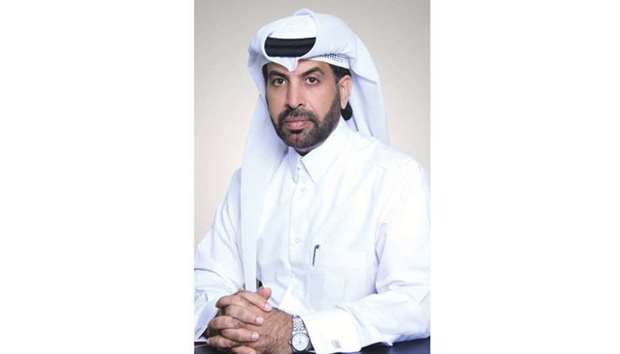The Qatar Stock Exchange (QSE) is undertaking a series of measures, including market makers and allowing omnibus account for the custodians, the latter of which indicates the advent of derivatives.
“We have number of measures awaiting regulatory approval (from Qatar Financial Market Authority or QFMA). They are for market makers and omnibus account opening,” QSE chief executive Rashid bin Ali al-Mansoori said.
In April, it was reported that both the QSE and QFMA are giving final touches to rules on market makers, which are expected to make their debut by the second half of this year.
The market making activities are to be carried out by the financial services companies, members in the market, after obtaining the necessary licences from the QFMA, in accordance with the rules set by the regulator within the framework of its efforts to develop the activities and financial services relating to Qatar’s capital market.
According to the rules, the market maker (the brokerage company which is a member of the exchange) shall, pursuant to a licence obtained from the QFMA, provide quotes in one or more eligible securities to enhance its liquidity in a manner specified in the agreement signed between the bourse and the market maker, setting forth the terms and conditions the market maker is entitled to comply with.
On omnibus, al-Mansoori said, it is used with custodians to facilities more investors in one account and make it efficient to place orders.
Market sources are of the view that one of the advantages of omnibus accounts is that it would reduce costs as one account is required for many investors and also ease the burden for issuers.
An omnibus account is normally overseen by a futures manager. The futures manager uses the funds in the account to complete trades on behalf of the participating individual investors.
Al-Mansoori also said there was a need to expand the use of margin trading and encourage companies and brokers to utilise the liquidity provision.
Margin trading, which was introduced last year, would stimulate trading volumes and liquidity as well as extend new financing sources for investors. Through margin trading, which will be applicable only for 20 stocks in the main index, a financial services company funds a percentage of the securities’ market value purchased for its client, pursuant to the agreement governing the relation between them.
Ever since the financial market regulator had approved the liquidity provision scheme in 2013, it has granted licences to the Group and Commercial Bank Investment Services. Plans are afoot to have more liquidity providers in the market, it is learnt.
Liquidity providers are critical for exchange traded funds (ETFs), two of which – one sponsored by Doha Bank and another one by Masraf Al Rayan – are expected to be launched soon.
Al Rayan Qatar ETF, which will track the 17-stock Al Rayan Islamic index, will be managed by Al Rayan Investment, while Doha Bank ETF, which will track the 20-stock Qatar Index, have Amwal and Group Securities as fund manager and liquidity provider respectively.

Al-Mansoori: Expansion measures.

